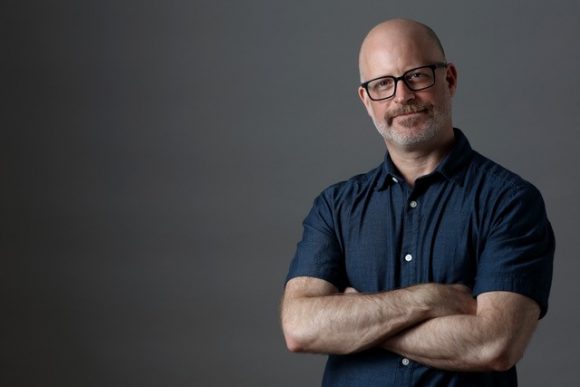- 3 Minute Read
- 21st June 2018
Work life balance? But work is life!
When it comes to wellbeing in the workspace, 'work life balance' is a hot topic. With everyone leading such busy lives, how can we achieve that equilibrium? Are we working too much? Should we be 'compartmentalising' or not? We caught up with Dr. Aaron Balick, psychotherapist, academic and Director of Stillpoint Spaces London, who argues that work and life are not necessarily mutually exclusive.
The idea of a work life balance is kind of a misnomer. After all, where do you spend more of your waking hours. At home or at work? If you take weekends out of the equation, for most of us the answer is a no-brainer – it’s work. Conceptually the idea of “work/life balance” throws our thinking out of whack – as if work were somehow separate from life. It’s not.
"It’s a wonder that psychotherapists aren’t more involved in the creation of working environments."
Perhaps if we had weddings to celebrate our commitment to like we do life partners, we’d take it more seriously. After all, it’s a really big deal how you spend so many hours of your precious week. While balancing things like answering work emails on Sunday afternoons when you could be doing other things is important – considering that work isn’t part of life is just the wrong way to look at it.
This is why where we work and who we work with are so enormously important. It’s a wonder that psychotherapists aren’t more involved in the creation of working environments. Consumer psychologists will have had a say in every supermarket you’ve ever visited, just to ensure you make that impulse buy on your way out. So why aren’t emotional psychologists (counsellors and psychotherapists) more involved in ensuring that work environments are nourishing to those working within them?
Stillpoint Spaces London’s vision is very much this. We believe ourselves to be the UK’s first psychological co-working space, designed from the ground up in a collaboration between psychotherapists and designer/architects. When we moved into our premises in London’s Clerkenwell Village, our building was an empty shell. We wondered together how we could build an innovative space that would house contemporary and smartly designed consulting rooms for therapists alongside a co-working and events space that would be open to the public. How do you combine the discrete privacy that you need in a therapy space with the pubic accessibility that you find in a co-working space?
It took some doing, but we got there. Across two floors we have our a very non-clinical setting where individuals can explore their inner lives with a therapist. Concurrently, upstairs is a bright and airy co-working space where people from a variety of backgrounds come and work during the day. Sunlight spills into the brightly lit space through its giant windows looking out onto Clerkenwell’s unique Victorian landscape.
"We have rolling arts exhibitions that line the walls and provide the opportunity to talk about the artist’s psychological processes in relation to their works."
Co-workers share this brightly painted open plan office, help themselves to fresh coffees and teas, peruse our magazine selection (from The New Yorker to Therapy Today), and if they need to take a call, they can do so from a separate phone booth so as not to subject their neighbours to noise and distraction. There’s a Library full of psychology books that serves as a bookable meeting room, and a small but smartly curated bookstall that members have discounted access to. We have rolling arts exhibitions that line the walls and provide the opportunity to talk about the artist’s psychological processes in relation to their works.
In the evenings the co-working space converts into an events space where we apply psychological insights to a variety of modern day concerns like technology and politics, explore themes like gender and the media, and facilitate networking between people from a variety of psychologically interested, but non-clinical backgrounds. In addition to our coaches and counsellors, we have artists, writers, designers, and non-profits working out of our space. We are also gratified to know that downstairs, in their own private and discrete setting, others are engaging the intense task of exploring their psyches at a deep level.
If work isn’t separate from life, then how do we make the work part of life a better fit? We need to always remember to make our work human. While we may not all be in our ideal jobs, we do nonetheless express ourselves through our work. If we engage in our work psychologically, we’re better able to do that.
"We need to always remember to make our work human."
Working in a psychological context can certainly help. If you can’t work in an environment like Stillpoint Spaces, then think about other ways you can be intentional in your work. You can do this by maintaining a sense of self-awareness – being insightful into yourself and your work to make it more nourishing for yourself. The relationships with others in that environment is key – so make sure that wherever you work, you engage with each other with a sense of kindness, generosity, and empathy.
By Dr. Aaron Balick
Aaron Balick is an author, media contributor, speaker, and psychotherapist drawing on the finest insights from the world of psychology and bringing them to people, culture, and technology.

